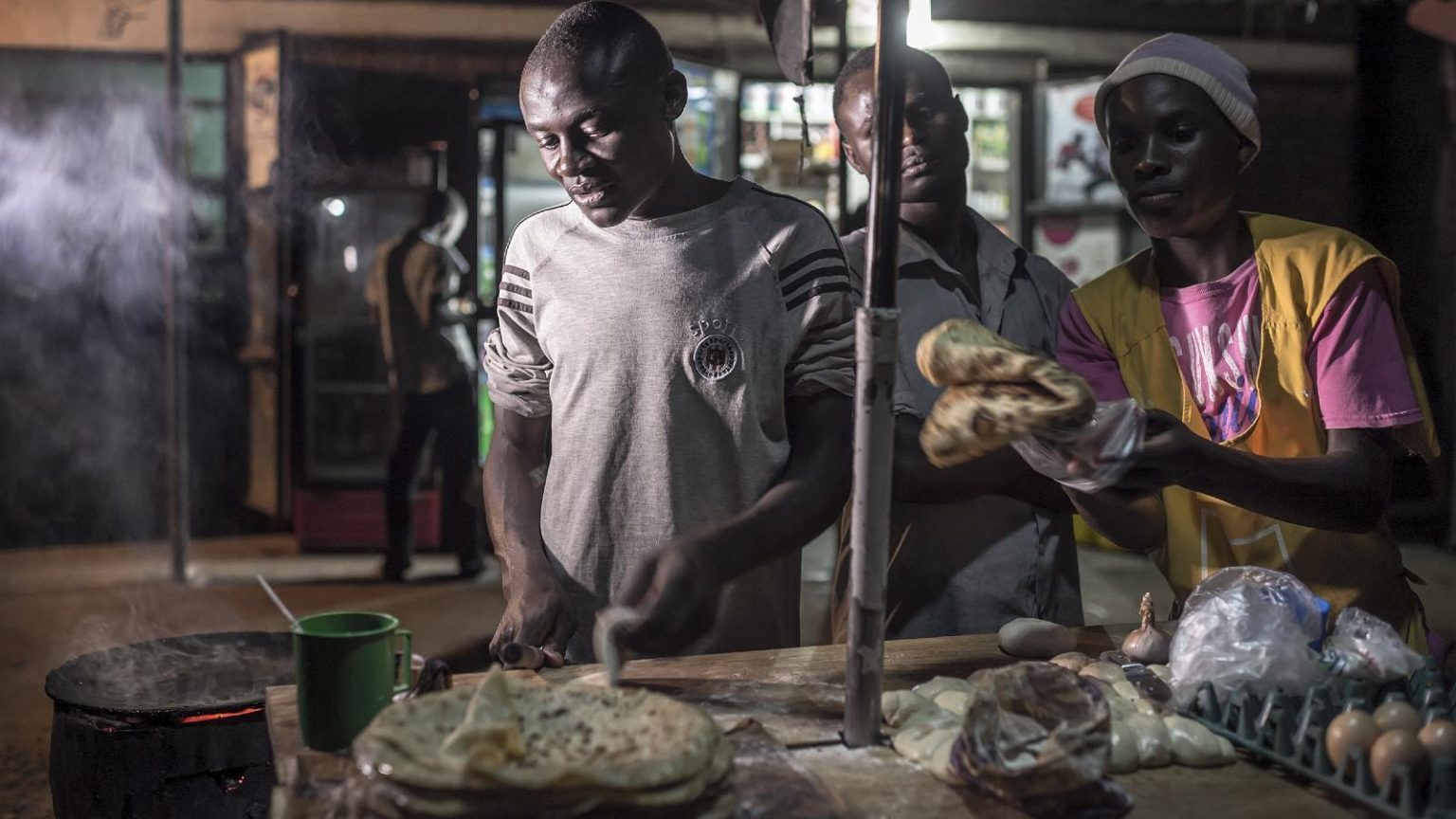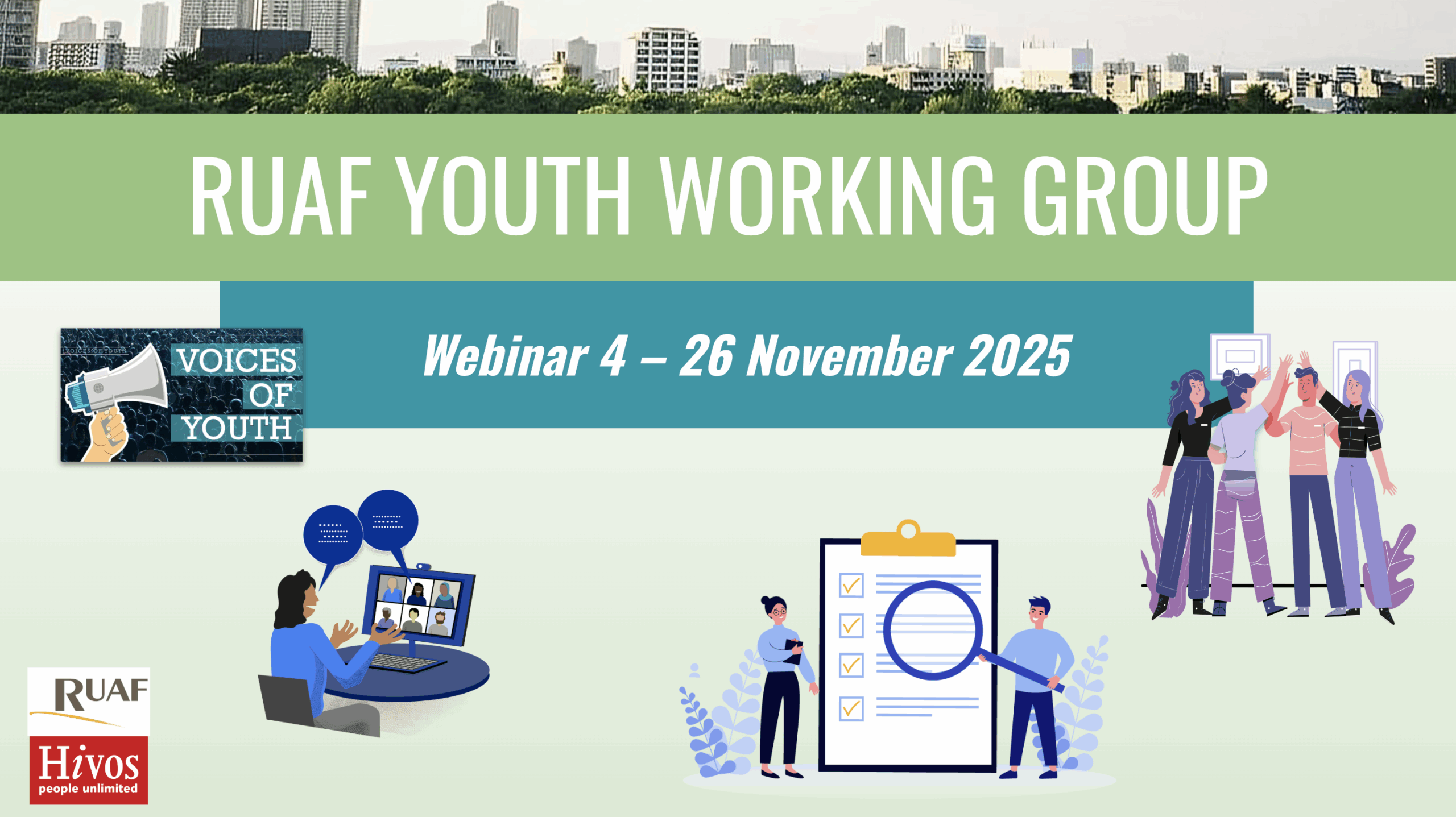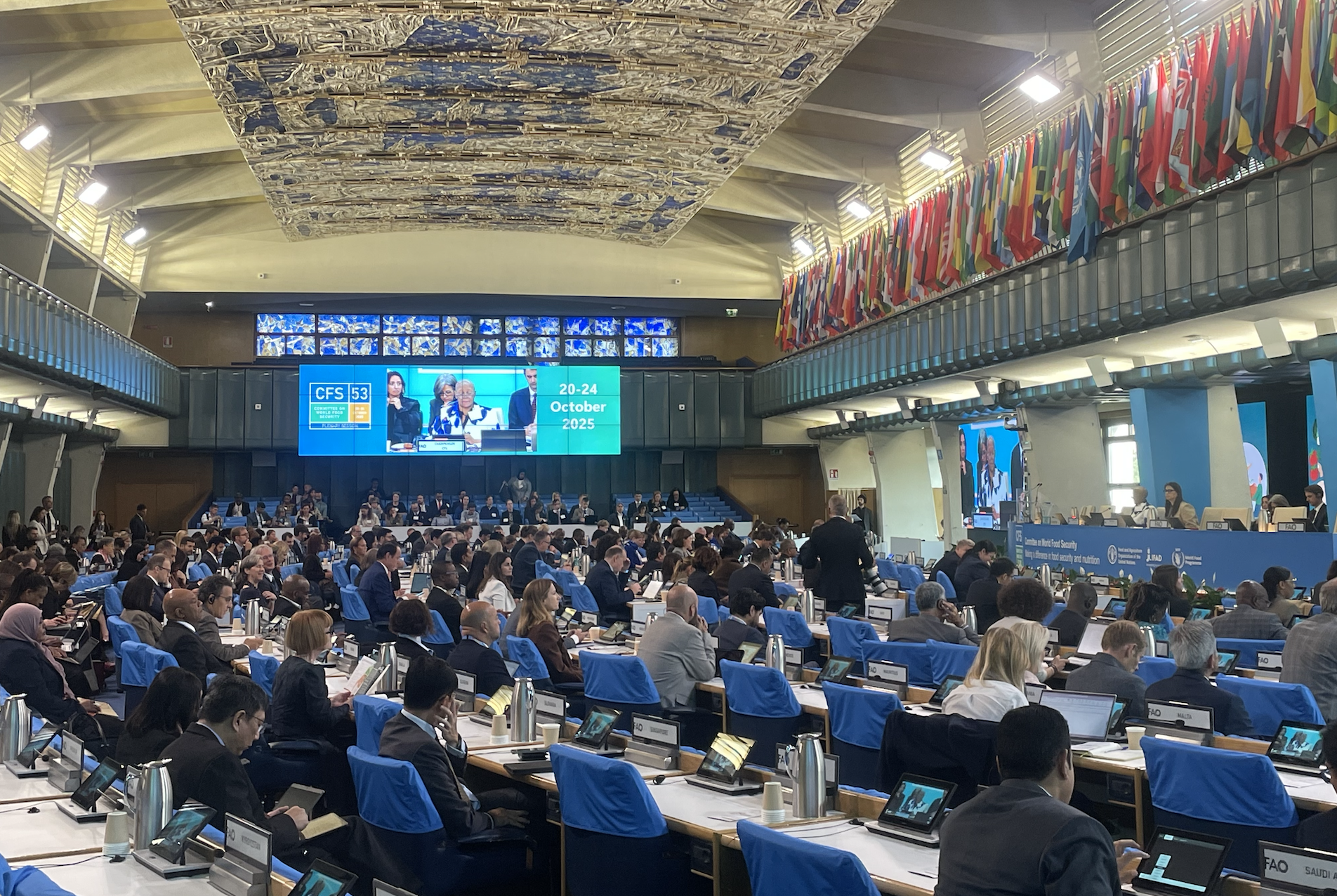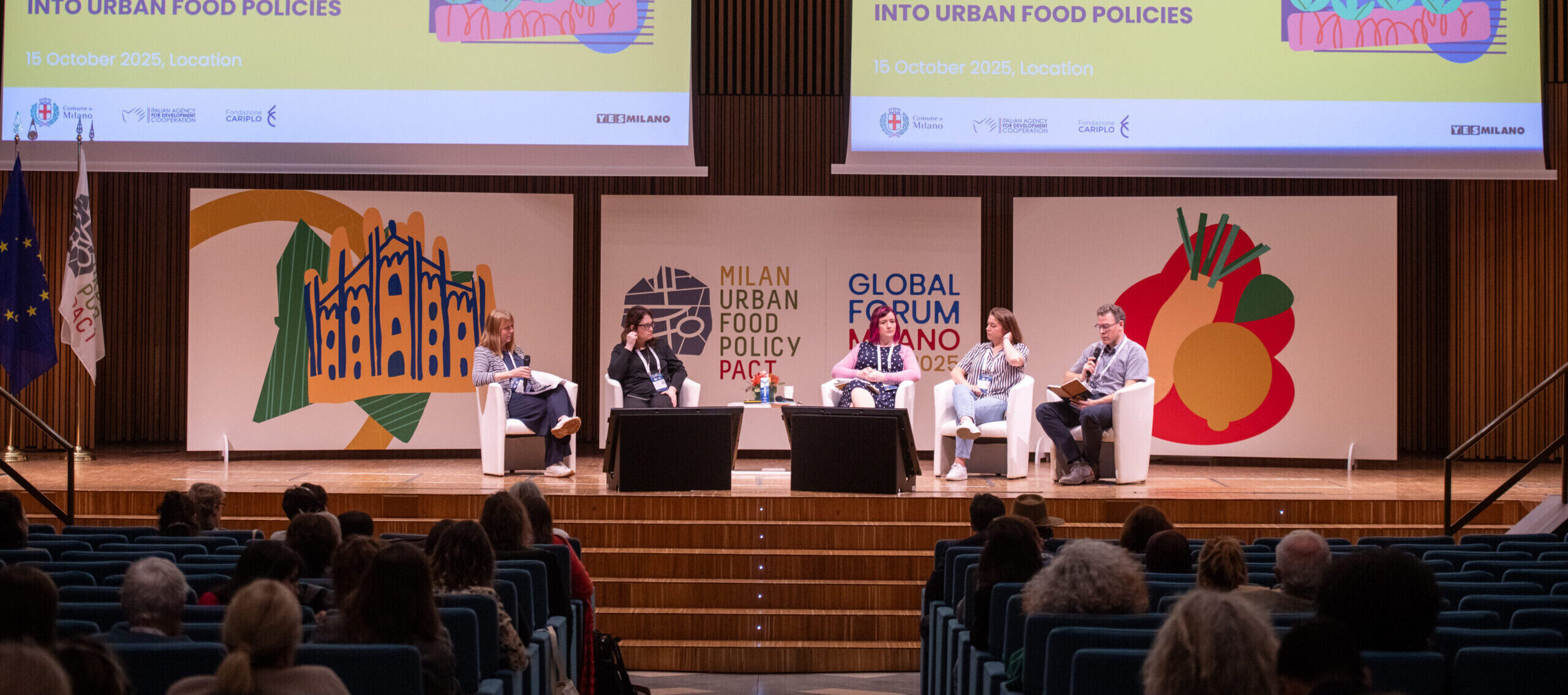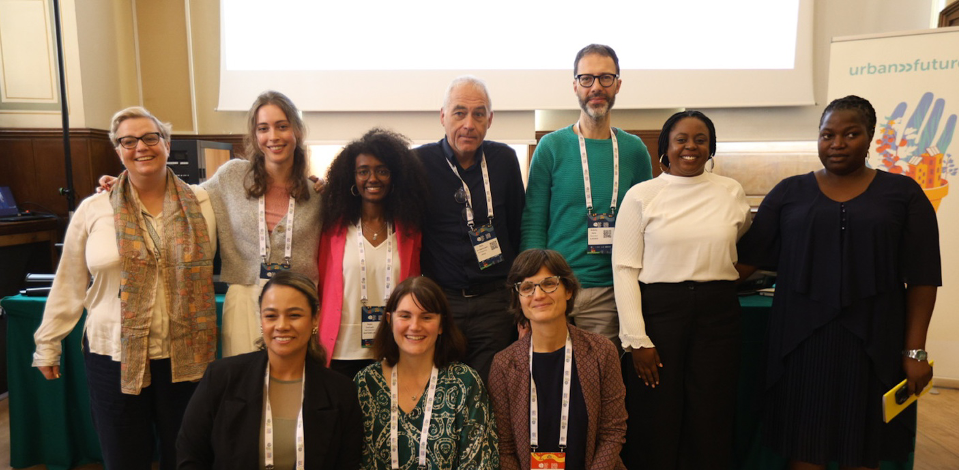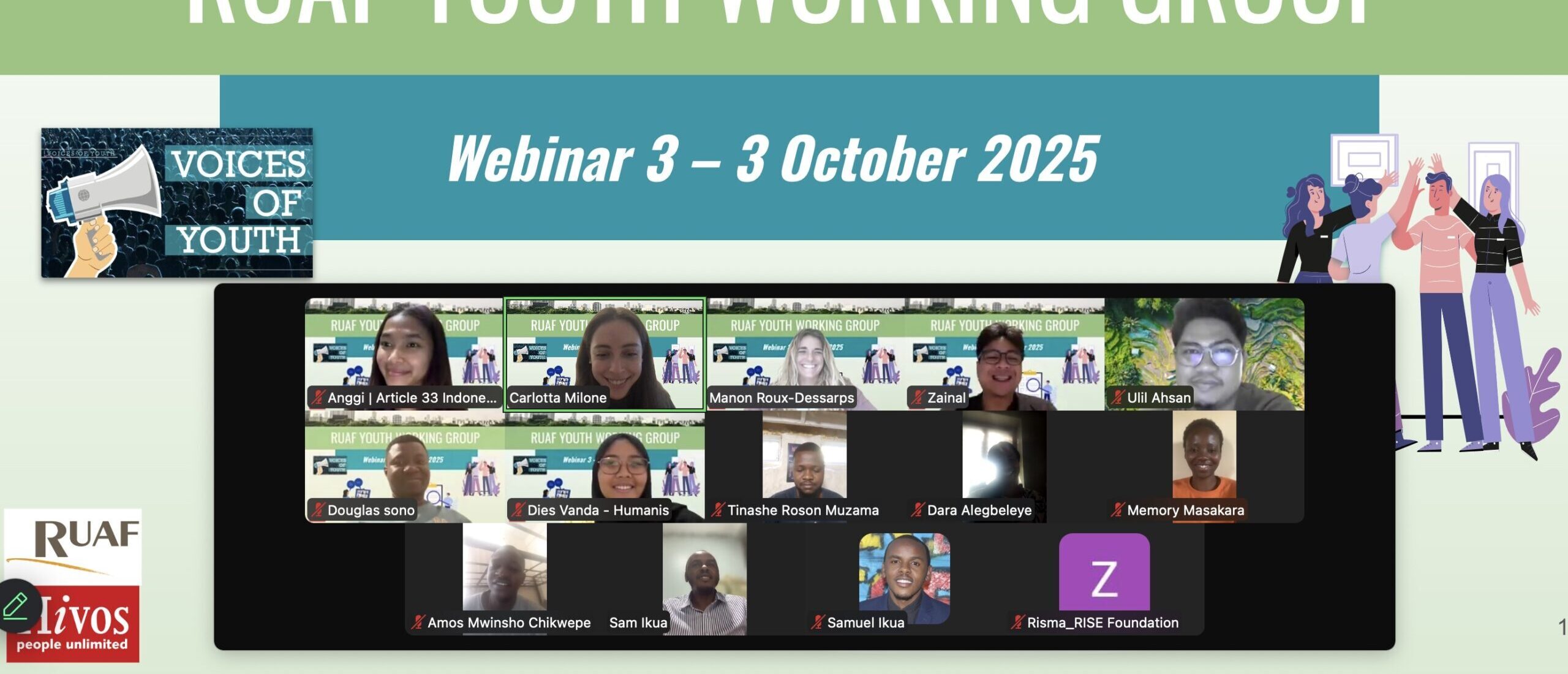Because Hivos believes that sustainable change will only happen if people undertake concerted and collective action, we bring together all relevant stakeholders in effective multi-actor initiatives. They allow rightsholders and their organizations, government and business representatives, creatives and technologists to co-create fair and inclusive solutions to complex problems.
Hivos’ collaboration with the RUAF Global Partnership on Sustainable Urban Agriculture and Food Systems, for example, aims to build sustainable city region food systems by connecting citizens and local entrepreneurs in multi-actor platforms.
Climate change and urban food systems
Climate change poses a serious threat to global food security, but the way we produce our food increases its pace and severity. Add to this rapid urbanization and the growing global population, and it is no surprise that the consequences of these mutually reinforcing processes are felt disproportionately by those least responsible for causing the problem: the urban poor.
To address this, RUAF supports integrating urban agriculture and city region food measures in local and national policies and programs, with active participation of the key actors, to make food systems more just, inclusive, safe, sustainable and resilient.
How RUAF works with multiple stakeholders
The governance and planning of urban food systems is particularly complex, as urban food systems are generally not formed through deliberate political, organizational and administrative processes. In this context, RUAF plays a central role in connecting, convening and engaging with different actors, including local, national and international institutions, both to improve the resilience of food systems and to advance effective policies to support people and communities who are mostly affected by unsafe and unsustainable food systems.
The benefit of using this approach lies in the fact that everyone, including those whose voices are not heard, has a role to play.
To do so, RUAF developed the Multi-stakeholder Policy formulation and Action Planning (MPAP) approach, which is based on principles of participation, ownership, commitment, mutual trust and collaboration. In MPAP, stakeholders are engaged in an early stage and are invited to identify problems and potential opportunities and to propose possible solutions as well as define their potential roles in implementation. Through this participatory process, different actors work together to address specific rural and urban challenges and equally contribute to the preparation, implementation and evaluation of a policy and related action plans. The benefit of using this approach lies in the fact that everyone, including those whose voices are not heard, has a role to play and actively participates in building a common vision.
City regions
The MPAP approach also informed the participatory, multi-stakeholder pillar of the City Region Food Systems (CRFS) assessment and planning process, co-developed by RUAF and FAO. The CRFS process works to strengthen rural-urban linkages, with a wide pool of food system stakeholders from across the city region engaged in all project phases – from drawing up the initial shared vision and setting priorities, to shaping research questions, contributing data and confirming findings, to planning and implementing actions. This forms the basis of a long-term platform. The current phase of the CRFS program focuses on building resilience to climate and pandemic-related shocks and stresses. The multi-stakeholder platforms in the pilot cities (Antananarivo, Madagascar; Colombo, Sri Lanka; Kigali, Rwanda; and Tamale, Ghana) therefore include urban resilience and disaster risk reduction managers, alongside local government representatives, food value chain actors and organizations, NGOs, academics, and the media.
The CRFS assessment and planning process manual and updated toolkit will be launched in late 2021, containing step-by-step guidance, examples, and resources to enable city region stakeholders to conduct their own CRFS project.
Experiences in Africa with Food Change Labs
As the need to transform food systems and address the pressing challenges of our times becomes more urgent than ever, various cities and regions are changing their approach to food systems governance by forming multi-stakeholder groups. They share perspectives on food systems challenges, develop innovative solutions, and influence food-related policy and planning. By including a spectrum of stakeholders from across the food system, these groups ensure that needs and interests of those who form the backbone of food supply chains (small-scale producers, processors, distributors, and citizen consumers) are not overlooked. Understanding people’s needs and including them in the decision and policy making debate is part of the transitioning process towards more resilient and sustainable food systems.
Drawing on the belief that all actors, especially those whose voices aren’t heard but whose lives are influenced by decisions, have a role to play, RUAF and Hivos have collaborated on various projects to facilitate multi-stakeholder policy formation.
- The HealthyfoodAfrica Program, started in June 2020, sees the participation of ten African cities, the so-called Food System Labs (FSL), which bring together local food system actors to tackle context-specific food system challenges from consumer awareness to sustainable production, local food diversity, improved post-harvest technologies, and food safety.
- The Youth Food Action project in Zimbabwe adopts a multi-pronged approach which aims to bring together different actors to raise awareness on sustainable agricultural actions, drive solutions, and influence national and international agenda by providing best practices and local experiences.
- The Sustainable Diets for All program (SD4All), which ran for five years (2016-2020), is an example of how multiple actors have worked together to shape a green and inclusive food system. SD4All successfully used multi-actor initiatives (referred to as Food Change Labs) to link citizens with differing interests and create alliances focused on sustainable food system transformation.
This article was originally published on Hivos.org.

